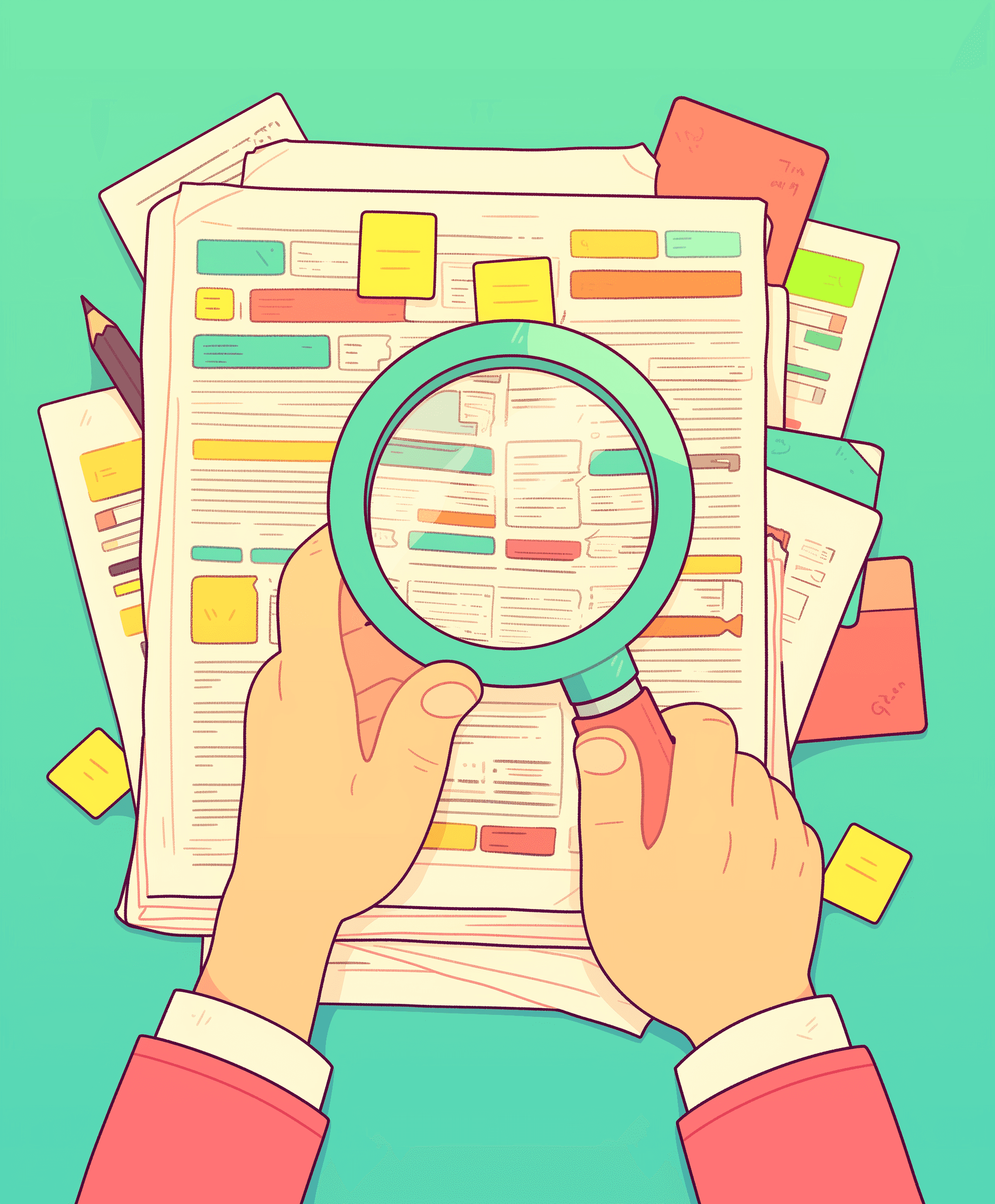Personality assessment
Mar 9, 2017
The 16 MBTI Personality Types: A Detailed Overview
The Myers-Briggs Type Indicator (MBTI) is one of the most widely recognized tools for understanding personality. Developed by Isabel Briggs Myers and Katherine Cook Briggs, the MBTI categorizes people into 16 distinct personality types based on four key dichotomies: Extraversion (E) vs. Introversion (I), Sensing (S) vs. Intuition (N), Thinking (T) vs. Feeling (F), and Judging (J) vs. Perceiving (P). Each individual is a combination of one preference from each of these four dichotomies, leading to a specific personality type.
These personality types provide insights into how people perceive the world and make decisions, making the MBTI useful for self-awareness, improving communication, and understanding differences in personal and professional relationships. Here's a detailed overview of the 16 MBTI personalities:
1. ISTJ: The Inspector
ISTJs are practical, reliable, and detail-oriented. They value tradition and prefer structure, excelling in roles where precision and order are required. ISTJs are often responsible and meticulous, following through on commitments.
2. ISFJ: The Protector
ISFJs are nurturing and deeply loyal. They are driven by a desire to help others and are known for their supportive and compassionate nature. ISFJs are practical and grounded, often taking on caretaking roles in personal and professional settings.
3. INFJ: The Advocate
INFJs are insightful, idealistic, and empathetic. They are passionate about their values and are driven to make the world a better place. INFJs are often seen as deep thinkers with strong intuition, and they tend to excel in roles that require visionary thinking and emotional understanding.
4. INTJ: The Architect
INTJs are strategic, independent, and highly analytical. They thrive on solving complex problems and are often focused on long-term planning. INTJs are natural leaders who prefer to work autonomously and are drawn to innovation and efficiency.
5. ISTP: The Virtuoso
ISTPs are pragmatic and action-oriented, often excelling in hands-on activities. They enjoy figuring out how things work and are highly analytical. ISTPs are spontaneous problem-solvers, preferring flexibility and immediate action over theoretical discussions.
6. ISFP: The Adventurer
ISFPs are gentle, artistic, and in touch with their senses. They are often spontaneous and live in the moment, with a deep appreciation for beauty and creativity. ISFPs value personal freedom and prefer environments where they can express themselves without constraint.
7. INFP: The Mediator
INFPs are creative, empathetic, and driven by strong internal values. They seek meaning in their work and relationships, often striving to help others or make a difference. INFPs are idealistic and introspective, enjoying deep, personal connections.
8. INTP: The Thinker
INTPs are curious, logical, and innovative. They are natural problem-solvers and enjoy exploring abstract ideas and theoretical concepts. INTPs are independent thinkers, often driven by a desire to understand the world around them.
9. ESTP: The Entrepreneur
ESTPs are energetic, resourceful, and quick to act. They enjoy being in the center of the action and thrive in fast-paced environments. ESTPs are practical and hands-on, excelling in roles that require quick thinking and adaptability.
10. ESFP: The Entertainer
ESFPs are outgoing, spontaneous, and fun-loving. They enjoy socializing and bringing joy to those around them. ESFPs live in the moment and are highly attuned to their surroundings, making them natural performers and entertainers.
11. ENFP: The Campaigner
ENFPs are enthusiastic, imaginative, and people-oriented. They thrive on exploring new ideas and possibilities, often bringing creativity and energy to any situation. ENFPs are passionate about personal growth and enjoy helping others discover their potential.
12. ENTP: The Debater
ENTPs are inventive, quick-witted, and adaptable. They love to challenge ideas and are often engaged in intellectual debates. ENTPs enjoy exploring new concepts and are highly innovative, excelling in environments that encourage creativity and out-of-the-box thinking.
13. ESTJ: The Executive
ESTJs are organized, decisive, and natural leaders. They value order and structure and often take charge in both personal and professional settings. ESTJs are goal-oriented and thrive in environments where they can create clear plans and achieve results.
14. ESFJ: The Consul
ESFJs are sociable, caring, and community-focused. They are sensitive to the needs of others and often take on supportive roles. ESFJs value harmony and are driven by a desire to help those around them feel comfortable and appreciated.
15. ENFJ: The Protagonist
ENFJs are charismatic, empathetic, and inspiring. They excel at motivating others and are often seen as natural leaders. ENFJs are highly attuned to the emotions of those around them, making them effective communicators and team builders.
16. ENTJ: The Commander
ENTJs are bold, strategic, and confident leaders. They are driven to achieve their goals and are often seen as assertive and decisive. ENTJs excel in leadership roles where they can implement their visions and strategies effectively.
Conclusion
Each of the 16 MBTI personality types represents a unique way of interacting with the world. By understanding these different types, individuals can gain valuable insights into their own behavior, improve communication with others, and build stronger relationships. Whether in personal development, team dynamics, or career planning, the MBTI offers a powerful framework for understanding human behavior and maximizing potential.
More blogs to read

Digital transformation
Unleashing the Power of Digital Transformation: ASSESS’s Organizational Assessment Approach
ASSESS’s digital transformation assessment provides a comprehensive roadmap for digital transformation, focusing on digital readiness and digital maturity.
Continue reading

Ability assessment
Unlocking Talent Potential with ASSESS Focus: A Revolutionary Cognitive Ability Tool
ASSESS Focus, a cognitive ability assessment tool, designed to empower recruiters and HR professionals with meaningful insights into candidates’ ability.
Continue reading

Personality assessment
Exploring the 16 Personalities: A Guide to Understanding Yourself and Others
The MBTI sorts personality into 16 types, each represented by a unique four-letter code.
Continue reading

Personality assessment
Understanding the Big Five Personality Traits and Their Impact on Success
The Big Five—Openness, Conscientiousness, Extraversion, Agreeableness, and Neuroticism—capture the core dimensions of personality.
Continue reading

Sales assessment
Building Success: Essential Sales Competencies for High-Performing Teams
Sales competencies—core skills, behaviors, and attributes that influence sales performance—are critical for developing, and retaining top-performing salespeople
Continue reading

Sales assessment
Unlocking Sales Potential: How Assessments Drive Recruitment and Performance
Skills like communication, persuasion, and resilience are vital, but they’re not always easy to gauge in an interview.
Continue reading

Sales assessment
Enhancing Recruitment and Development with Sales Assessments
A sales assessment is a psychometric tool designed to evaluate traits, competencies, motivators, and cognitive abilities relevant to sales roles.
Continue reading

Assessment center
Types of Assessment Center Exercises
This post provides a list of potential assessment center exercises that could be used in talent selection or development.
Continue reading

Assessment center
Designing an Effective Assessment Center
Assessment Centers offer a structured, immersive approach to evaluate candidates' skills, behaviors, and potential, providing a rich basis for decision-making.
Continue reading

Leadership
What is Leadership Development Assessment?
Leadership assessment for development focuses on identifying a leader’s strengths, gaps, and growth potential to guide targeted development efforts.
Continue reading

Career orientation
Most Relevant Career Orientation Assessment Frameworks
Career orientation assessments provide valuable insights into an individual’s strengths, preferences, and interests.
Continue reading

Employee engagement
Top Five Employee Engagement Drivers: Backed by Research
Employee engagement is critical for organizational success, impacting productivity, retention, and overall company performance.
Continue reading

Assessment
Talent Assessment Using ISO 10667: Ensuring Quality and Consistency
To standardize talent assesment practices and ensure their quality, ISO 10667 provides a comprehensive framework.
Continue reading

Talent acquisition
How to Select the Right Assessment Tools for Your Organization
Choosing the right assessment tools is crucial for organizations aiming to make informed decisions about recruitment, employee development, and talent selection
Continue reading

Recruitment
Hiring Millennials: How Talent Assessments Help Build an Independent and Innovative Workforce
As millennials continue to make up a larger share of the workforce, companies must adapt their hiring strategies to attract and retain this dynamic generation.
Continue reading

Competency
ASSESS Grammar Test: Boosting Workplace Communication Skills
Proper grammar is essential for conveying messages accurately, whether in emails, reports, or client interactions.
Continue reading

Competency
Manages Ambiguity: Navigating Uncertainty with Confidence
In today’s dynamic business environment, leaders often face situations where information is incomplete, outcomes are uncertain, or events unfold unpredictably.
Continue reading

Competency
Decision Quality: A Cornerstone of Effective Leadership
Decision quality represents a leader’s ability to make well-considered, timely, and effective decisions, even in complex or ambiguous situations.
Continue reading

Competency
Instills Trust: A Key Leadership Competency
Trust is a cornerstone of effective leadership and organizational culture.
Continue reading

psychometrics
Can We Assess Toxic Workplace Traits?
As we become more attuned to the detrimental effects of toxic styles, the importance of assessing behaviors that contribute to toxicity has become critical.
Continue reading

Ability assessment
The Power of Cognitive Ability Tests in Talent Management
Cognitive ability tests are effective tools for evaluating potential to excel in roles that demand analytical thinking, quick learning, and problem-solving.
Continue reading

360 degree feedback
360-Degree Feedback: Benefits, Challenges, and Best Practices
360-degree feedback has become a popular tool in talent development, particularly for enhancing leadership skills and fostering continuous improvement.
Continue reading

Psychometrics
How to Use Personality Assessments to Improve Team Dynamics
Effective teamwork is essential for organizational success, and one of the best ways to enhance team dynamics is through personality assessments.
Continue reading

Psychometrics
The Science Behind Psychometric Testing: How Assessments Drive Better Hiring Decisions
The Science Behind Psychometric Testing: How do assessments drive better results using scientific methods, such as validity and reliability testing.
Continue reading

Organizational surveys
Measuring Organizational Health: Key Metrics and Why It Matters
Discover how measuring organizational health through key metrics like engagement, leadership, and culture alignment can boost long-term success and adaptability
Continue reading

Assessment tools
Assess International vs. AssessFirst: A Comparative Overview
Assess International vs. AssessFirst: A Comparative Overview
Continue reading

Personality assessment
The 16 MBTI Personality Types: A Detailed Overview
MBTI categorizes people into 16 distinct personality types based on four key dichotomies. They shape how people interact with the world.
Continue reading

Cognitive ability
Understanding Cognitive Ability Assessments: Unlocking Mental Potential
Cognitive ability assessments are tools that measure the intellectual capacity, such as reasoning, attention, memory, and learning.
Continue reading

Coaching
The Role of Assessment in Coaching: Unlocking Potential through Insight
One of the primary benefits of using assessments in coaching is that they promote self-awareness. Assessments provide objective, data-driven insights
Continue reading

Personality assessment
Unlocking Self-Awareness with the Enneagram Test: A Path to Personal Growth and Understanding
Explore the Enneagram test, a powerful tool for self-awareness, personal growth, and improving relationships through understanding motivators and behaviors.
Continue reading

Personality assessment
Understanding the DISC Personality Assessment: A Pathway to Better Communication and Teamwork
Discover how the DISC personality assessment improves communication, enhances teamwork, and strengthens relationships by understanding behavior styles.
Continue reading

Personality assessment
The Importance and Value of the MBTI Assessment: A Tool for Self-Awareness and Team Dynamics
Discover the importance and value of the MBTI assessment in fostering self-awareness, improving communication, and enhancing team dynamics.
Continue reading

Talent Management
Understanding Generation Z: Engaging the Restless Workforce
Generation Z, born roughly between 1997 and 2012, is entering the workforce with a unique set of expectations and challenges. Companies seeking to engage and retain Gen Z talent need to understand what drives this generation.
Continue reading

Talent management
Why do employees stay at your company
Talent Management, embodied in attracting, retaining, and motivating superior employees is a critical issue as it is amongst the top concerns for modern cor ...
Continue reading

Career
Unlocking Career Success with ASSESS Career Orientation: A Comprehensive Approach
Choosing the right career is one of the most significant decisions you will make in life. It shapes not only your professional trajectory but also impacts y ...
Continue reading

Assessment
What is an Assessment Center?
The term assessment center has been widely used in the fields of industrial psychology and human resources management for more than 50 years ...
Continue reading

Assessment
Personality Psychology & Job Performance
Personality psychology is a branch of psychology that focuses on defining and explaining personality as well as identifying individual differences between p ...
Continue reading

Leadership
Chameleon Leader: Situational leadership model
Leadership theory has been studied for many years. There are many different theories that define leadership from different perspectives, all expressing thei ...
Continue reading

Career
Understanding your core values as a human
You place great emphasis on understanding the values that shape your thoughts and lifestyle. Your quest for finding meaning in life drives you to seek align ...
Continue reading

Tools
Can Values Be Measured Using Assessment Tools?
The question of whether values can be accurately measured through assessment tools has been a topic of debate in psychological, organizational, and educatio ...
Continue reading

Phsycometrics
Understanding the different types of psychometric testing categories
Psychometric testing has become a valuable tool in various fields, including recruitment, personal development, and career orientation
Continue reading

Talent
Talent abiligy post pandemic
While many businesses have withstood the economic shock brought on by Covid19, nonetheless making amendments within the organization’s practices and strateg ...
Continue reading

Products
The role of ASSESS OCM in recruitment and professional development
In today’s fast-evolving workplace, organizations are continuously seeking ways to optimize their talent management processes. One of the most effective too ...
Continue reading

Psychometric, Assessment
How to Prepare for a Psychometric Assessment
Psychometric assessments are becoming a common part of the recruitment process and personal development programs. These tests measure a variety of cognitive ...
Continue reading

Psychometric, Assessment
What is a Psychometric Assessment Test?
Psychometric assessment tests have become an essential tool for businesses, educational institutions, and individuals seeking to understand personality trai ...
Continue reading
Individual Development
